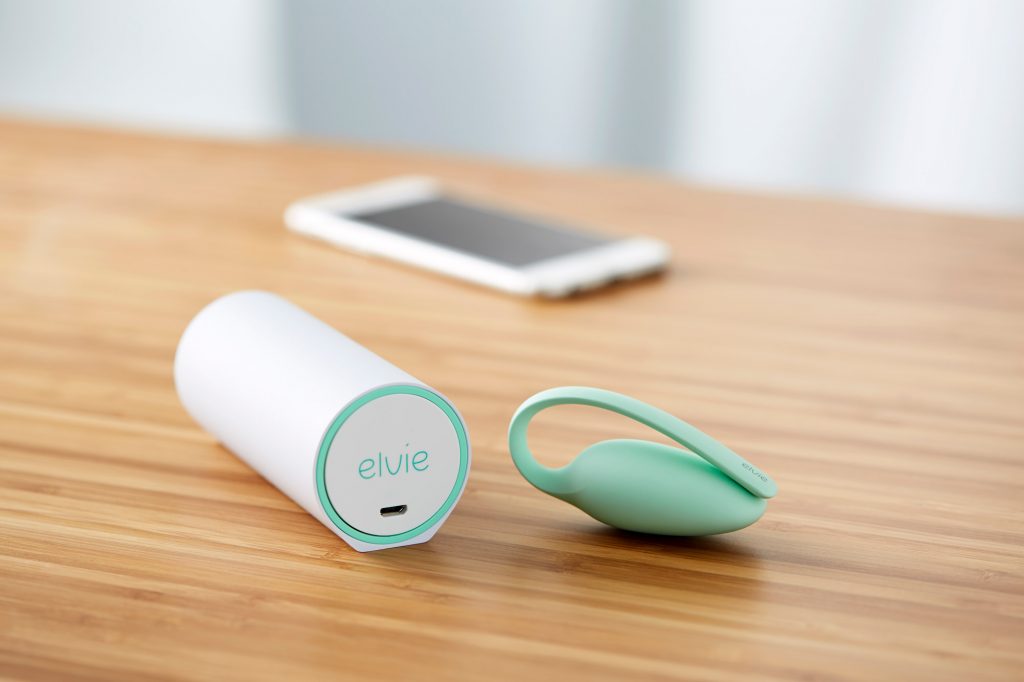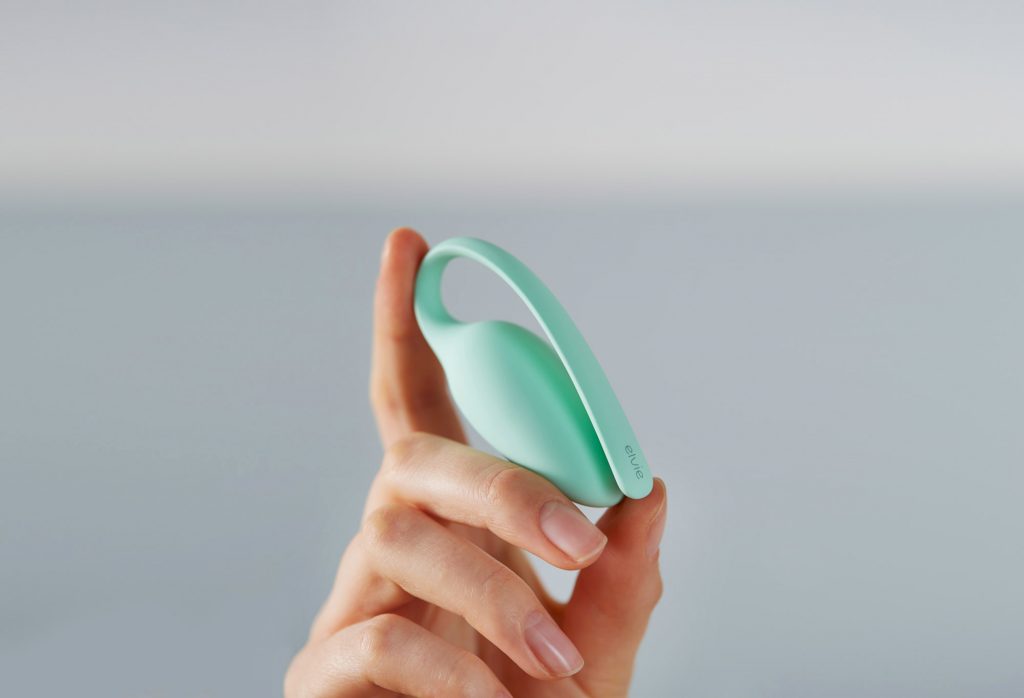In support of sexual health week, Elvie, creators of the award-winning Kegel trainer, have partnered with Psychosexual Therapist Kate Moyle to shine some light on the importance of elevating the discussion around female sexual health and, in particular, pelvic floor training. Here is their conversation.

A lot has been done to help break down the ‘taboo’ of talking about sex and sexual health, but there’s still work to be done. Why do you think that encouraging the discussion around sexual health is so important?
Essentially, we need to get to a place where sex and sexual health is talked about like everything else in our lives. We brush our teeth, go to the physio or the optician, and visit the doctor if something is wrong. So why can’t we offer sex and sexual health the same opportunity?
We see reports of as many as one in three women not attending smear tests in the UK because it’s to do with a body part that is considered embarrassing. Certainly, as a Psychosexual Therapist, I often see people who have been struggling with their difficulty for a while because they felt embarrassed or ashamed about the problem. The difficulty with this is that the silence and lack of healthy conversation around the subject get in the way of people accessing help, sorting out their challenges and moving on from them.
So often problems or difficulties around sex have an impact way beyond the immediacy of occurrence. They’re potentially damaging self-esteem, confidence, relationships and causing stress and anxiety. This needs to change.

We’ve been hearing more and more about the importance of the pelvic floor training in recent years. Why is it so important and what would you say are the main sexual health issues that can arise as a result of a weak pelvic floor? How can pelvic floor training help combat these issues?
The pelvic floor is a key part of our ‘core’ which supports our pelvic organs. It’s hugely important as our pelvis plays multiple roles in our minute-to-minute life. But when it comes to sex a strong pelvic floor is very important. In men, a stronger pelvic floor helps in achieving and sustaining erections, and for women, more control over the pelvic floor (including being able to relax it) is important for comfortable penetration and also plays a key role in orgasm, which involves a pleasurable wave of muscular contractions.
Pelvic floor exercises take more blood to the pelvic area, which is an important part of the arousal process. Some women may experience some leaking, particularly after pelvic stress (e.g. pregnancy and childbirth). This can create anxiety around sex for fear of leaking. Training the pelvic floor is an important part of prenatal care and postnatal recovery both physically and mentally. It helps in regaining a sense of being in control and re-developing confidence around sex.

How well do you feel women are educated about the pelvic floor and the benefits of pelvic floor training?
Very poorly. The first time it really gets a compulsory mention is during pregnancy when the pelvic floor is under more stress. Women who exercise, whether weight training or forms of exercise like yoga, maybe more aware and open to talking about it in terms of keeping themselves healthy and avoiding injury. But, in general, it is rarely mentioned until it has to be. We need to be telling everyone these exercises are easy to do and slot into our daily routines. We should just be in the rhythm of doing them like brushing our teeth.
Confidence in the bedroom, especially postpartum, can be difficult for some women. This is often a result of losing pelvic floor strength. Do you have any tips on how women can build on their confidence in these cases?
Go at your own speed. Although the general advice is to wait until after your 6-week GP check-up to have intercourse, many find they aren’t actually examined at this point. And they may feel that they would have liked to ask more questions about sex.
A product like Elvie is brilliant for helping to remind you to do your exercises and keeping you motivated. Many women’s health physiotherapists offer a post-natal MOT which I would also recommend to everyone. It’s not just the strength of your pelvic floor, it may also be the coordination. So finding someone who can tell you what to do differently can be really helpful. And it may have an impact in ways you don’t even notice, for example, the way that you lift your baby.
The key message is to not rush back into intercourse. There are plenty of other ways that you can be sexual and intimate with your partner. It’s much more important to feel relaxed and comfortable around each other so that you can enjoy what you are doing. That is the thing that will most promote arousal and desire, which play an important part in sex. To ensure sex is also as comfortable as possible, I recommend using lubricant for a while after childbirth as breastfeeding can lead to vaginal dryness. An all-natural product is best.
Take your time and try when you are ready. Couples often get into difficulty when they feel they aren’t wanted, desired or appreciated by their partners. There are other ways of achieving that when intercourse is not in the cards.

How do you feel awareness around pelvic floor training and discussion around sex and sexual health is beneficial, physically and mentally, earlier in life?
Quite simply, the earlier we learn about things, the easier they are to implement in our lives. If we have always done something or heard about it, then it just isn’t a big deal. We should slot pelvic floor training into our lives the way we do brushing our teeth, drinking water, washing our hair, showering, etc. Taboos and stigmas thrive in silence, as
does shame. What we need to be focusing on is breaking these feelings down through conversation and education about what is a normal and functional part of our bodies and being human.
Kate Moyle is a Psychosexual & Relationship Therapist and Therapist on BBC’s Sex On The Couch. To learn more about her visit her website, Instagram and Twitter.
For more on Elvie, check out our conversation with Maker Tania Bohler on the Meet the Maker podcast.
